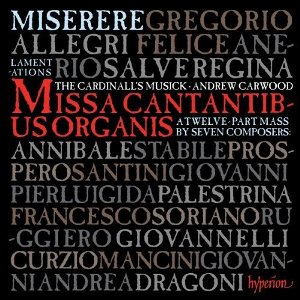PERGOLESI Stabat Mater VIVALDI Nisi Dominus
Pergolesi: Stabat Mater & Vivaldi: Nisi Dominus
Shira Patchornik (soprano), Maarten Engeltjes (counter-tenor), Prjct Amsterdam
PTC5187053
[…]
Engeltjes and soprano Shira Patchornik are well matched in tone and temperament, both sensitive and responsive to the text. Overall they favour brisk tempos with delicate quicksilver gestures but thankfully they never allow the music to become frenetic. Their sound is less operatic than Alessandrini’s thrilling account with Concerto Italiano; if anything PRJCT Amsterdam belong to that profoundly reflective but fresh continuum of interpretations initiated by Hogwood’s Academy of Ancient Music, and indeed Engeltjes has admirable Bowman-esque qualities at several key moments. I particularly like his mini cadenza on ‘lacrimosa’ in the first movement, and both singers have heart-stopping long notes in the fifth movement, ‘Quis es homo’.
The orchestra are superb accompanists, often setting scenes with striking moods and then operating subtly but persuasively when singers (and, crucially, text) enter. In particular I was chilled by the visceral representation of swords in ‘Cuius animam gementem’ and the palpitations that proceed ‘Vidit suum’. The irony of an ensemble named without vowels is not lost on me when here my only gripe is an occasional vowel salad: for example ‘dum pendebat’ can veer towards ‘doom’ or ‘damn’ and such tiny nuances are frequently detectable (‘Quae moerebat’ is also unexpectedly murky). However, remembering how Hogwood’s recording moved me to tears as a teenager, I feel sure that new audiences will have the same reaction with this vital and heartfelt recording.
[…]
For the full text of this review please click here: Gramophone April 2024
Shira Patchornik (soprano), Maarten Engeltjes (counter-tenor), Prjct Amsterdam
PTC5187053
[…]
Engeltjes and soprano Shira Patchornik are well matched in tone and temperament, both sensitive and responsive to the text. Overall they favour brisk tempos with delicate quicksilver gestures but thankfully they never allow the music to become frenetic. Their sound is less operatic than Alessandrini’s thrilling account with Concerto Italiano; if anything PRJCT Amsterdam belong to that profoundly reflective but fresh continuum of interpretations initiated by Hogwood’s Academy of Ancient Music, and indeed Engeltjes has admirable Bowman-esque qualities at several key moments. I particularly like his mini cadenza on ‘lacrimosa’ in the first movement, and both singers have heart-stopping long notes in the fifth movement, ‘Quis es homo’.
The orchestra are superb accompanists, often setting scenes with striking moods and then operating subtly but persuasively when singers (and, crucially, text) enter. In particular I was chilled by the visceral representation of swords in ‘Cuius animam gementem’ and the palpitations that proceed ‘Vidit suum’. The irony of an ensemble named without vowels is not lost on me when here my only gripe is an occasional vowel salad: for example ‘dum pendebat’ can veer towards ‘doom’ or ‘damn’ and such tiny nuances are frequently detectable (‘Quae moerebat’ is also unexpectedly murky). However, remembering how Hogwood’s recording moved me to tears as a teenager, I feel sure that new audiences will have the same reaction with this vital and heartfelt recording.
[…]
For the full text of this review please click here: Gramophone April 2024



Comments
Post a Comment